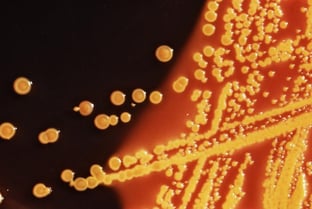In January 2013, we were blown away by a completely biological robot created at the University of Illinois, Urbana-Champaign. Two years later, the team is making exciting new steps in this unique and next-generation endeavor.
Read MoreTags: University of Illinois Urbana-Champaign, Urbana-Champaign, UIUrbana, BioResearch Product Faire Event, IL, 2016
 Research institutions around the country are continually expanding their research capabilities by constructing new research buildings and establishing new research departments, providing researchers with the ability to make advances on pressing research questions. USC recently established a new Translational Genomics Department and UPenn has opened a new Center for Advanced Cellular Therapeutics.
Research institutions around the country are continually expanding their research capabilities by constructing new research buildings and establishing new research departments, providing researchers with the ability to make advances on pressing research questions. USC recently established a new Translational Genomics Department and UPenn has opened a new Center for Advanced Cellular Therapeutics.
Tags: Midwest, University of Minnesota, Minnesota, MN, UMinn, Twin Cities, New research center, Microbiology Research Facility, 2016, BioResearch Product Faire
 When it comes to the brain, there is still so much that scientists don't know, like what causes certain diseases and how traits like memory and intelligence differ from brain to brain. Scientists in Illinois are currently making strides to understand the latter. A team of researchers from the University of Illinois, Urbana-Champaign, recently conducted a study that revealed that anatomical and cognitive factors in different brains are affected by different traits.
When it comes to the brain, there is still so much that scientists don't know, like what causes certain diseases and how traits like memory and intelligence differ from brain to brain. Scientists in Illinois are currently making strides to understand the latter. A team of researchers from the University of Illinois, Urbana-Champaign, recently conducted a study that revealed that anatomical and cognitive factors in different brains are affected by different traits.
Tags: Midwest, Scientists, University of Illinois Urbana-Champaign, Illinois, Neuroscience, UIUrbana, Research, IL, 2016, BioResearch Product Faire
Though it has been over five hundred years since the Black Death devastated the population of Europe, life science researchers today believe that we can learn something about HIV infections by studying the genetic aftermath of the plague.
Tags: University of Cincinnati, BioResearch Product Faire Event, Cincinnati, OH, UCinci, 2016
 The University of Southern California is known around the world as being a leader in many fields, including life science research, and even has a separate campus dedicated to teaching and researching health sciences. With 6 basic science departments, 18 clinical departments, 7 research institutes, and dozens of research centers and programs, the Keck School of Medicine on the USC Health Science Campus is continuing to expand and increase life science capabilities. In 2015, the university opened a new $15 million Center for Pullmonary Research as well as a new $10 million Center for Convergent Bioscience.
The University of Southern California is known around the world as being a leader in many fields, including life science research, and even has a separate campus dedicated to teaching and researching health sciences. With 6 basic science departments, 18 clinical departments, 7 research institutes, and dozens of research centers and programs, the Keck School of Medicine on the USC Health Science Campus is continuing to expand and increase life science capabilities. In 2015, the university opened a new $15 million Center for Pullmonary Research as well as a new $10 million Center for Convergent Bioscience.
The ever-growing campus is adding a new department to its impressive list, with the recent establishment of a Translational Genomics Department to be located in the Harlyne J. Norris Research Tower on the USC Health Sciences campus.
Read MoreTags: CA, University of Southern California, Southwest, USC, Los Angeles, BRPF, 2016, BioResearch Product Faire, Translational Genomics

The University of Pennsylvania in Philadelphia is one of the top research institutions in the world and is continuously expanding its research potential. Last year, the university opened a new Prematurity Research Center with the support of a $10 million donation from the March of Dimes Foundation of Philadelphia. Earlier this year, the university teamed up with the pharmaceutical company Novartis to open a new center on campus dedicated to cancer research, called the Novartis-Penn Center for Advanced Cellular Therapeutics (CACT).
The Center for Advanced Cellular Therapeutics, which is located on the University of Pennsylvania Medical Campus, is a $27 million project that will provide new laboratory and clinical space for physicians and scientists working to develop personalized cellular therapies for cancer treatments.
Read MoreTags: Northeast, University of Pennsylvania, UPenn, cancer research, Philadelphia, BioResearch Product Faire Event, PA, 2016, Novartis, Center for Advanced Cellular Therapeutics, Cell therapy
Over the past year, the life science research community has endeavored to control fat in response to the obesity epidemic. We’ve seen papers about reducing fat storage capacity and even burning fat at squirrel speed. However, a recent study by the Michigan State University suggests that fat may actually be linked to longevity.
Read More
Tags: Michigan State University, BioResearch Product Faire Event, MI, East Lansing, MSU, 2016

Escherichia coli, most commonly referred to as E. coli, is a common form of bacteria found in the environment, foods, and the intestinal tracts of animals. E. coli is very diverse, with some strains being harmless while others can cause a wide range of illnesses, including urinary tract infections, diarrhea, and pneumonia. With hundreds of thousands of deaths caused by E. coli each year, scientists have been diligently working to better understand this bacteria.
Read MoreTags: Northeast, Maryland, MD, Baltimore, University of Maryland, Baltimore, UMDBalt, BioResearch Product Faire Event, Front Line event, 2016, E Coli
Developing a novel cancer-busting drug is only useful if it can actually be administered to the affected area. We saw last July how UIUC researchers are sneaking drugs past the immune system so they don’t get destroyed in transit. Taking the next step, researchers at The Ohio State University are developing a “Trojan horse” that allows drugs to successfully invade leukemia cells.
Read MoreTags: Ohio State University, BioResearch Product Faire Event, Columbus, OH, OhStu, 2016


